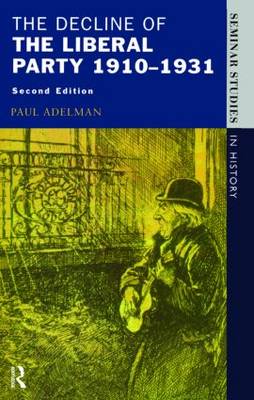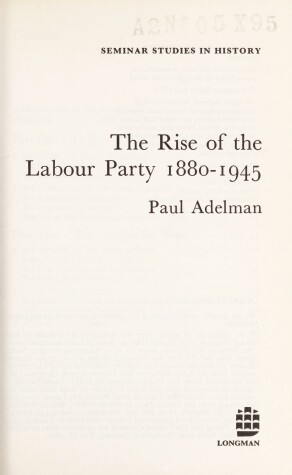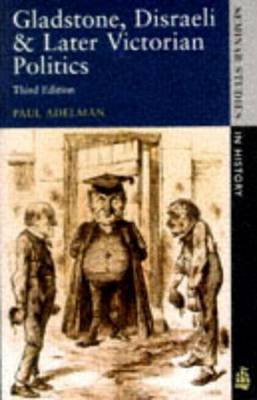Seminar Studies in History
3 total works
Paul Adelman seeks to explain the Liberal Party's dramatic transformation in political fortune. This clear, objective up-to-date account of the history of the Liberal Party covers the key period, 1910-1931. Focusing on liberal decline and drawing upon the different views forwarded by historians to account for this phenomenon, it discusses liberal decline before World War 1, the impact of the war on the liberals and the divisions that grew in the party after December 1916 between followers of Asquith and Lloyd George. A number of general factors are also covered, the impact of social and economic change, the effects of the Reform Act of 1918 and the rise of the Labour party. An ideal text for A-level and undergraduate students of history and politics.
This popular study covers two major topics: the formation of the Labour Party and its emergence as the main rival to the conservatives. This transformation of the British political scene has been accounted for in a variety of ways. Dr Adelman examines these explanations and concludes that while there is a consensus about the reasons for the creation of the Labour Party there is no agreement about why it rose to such prominence.
A major new edition of this introductory survey of the two main political parties, from the rise of the Liberal Party under Gladstone until the period of Conservative domination under Salisbury in the late nineteenth century. As well as assessing the impact of major political landmarks such as the Great Reform Acts, it also describes the nineteenth century political scene.


